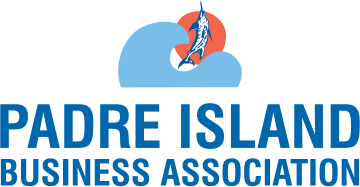Over the weekend, plummeting temperatures and wintry weather mixtures have struck
communities across Texas, with many residents experiencing power outages, ruptured water
lines, hail damage, fallen tree limbs, or other issues due to below-freezing temperatures. As
home and business owners begin to thaw out in the coming days, many will discover a
variety of problems resulting from the sudden cold snap. While some homeowners can
easily handle cleanup and repair efforts, others will likely require the help of a professional.
Additionally, other residents may begin to piece together facts and receipts to learn they
interacted with an impersonated utility company that demanded immediate payment or a
fraudulent online seller advertising winter weather and emergency products.
After significant weather events that are likely to result in property damage, Better Business
Bureau typically receives an increase in reports of unethical contractors operating across
affected regions. Commonly referred to as ‘storm chasers,’ many businesses offering
services to residents negatively impacted by severe weather are well-respected and
legitimate. However, among these groups are those who would take advantage of a
homeowner in need rather than provide any meaningful service.
Some common issues reported to BBB in these types of situations include:
The contractor requires a significant deposit (over 50% of the total estimate) from
the property owner and then continually postpones the start date until
communication stops. Any effort by the homeowner to contact the business is
unsuccessful, and the business’s physical location is either too distant to travel to,
abandoned, a residential home for sale, or a vacant lot.
The homeowner is approached by a contractor who claims they have excess material
left over from a nearby project, and the business can pass the savings on to the
homeowner if they can start work immediately. Once the contractor begins the
project, the scope of work expands far beyond what was initially estimated, and the
homeowner is held accountable for paying a final bill that is significantly more
expensive than they expected.
Repairs on systems requiring specialized work (plumbers, electricians, HVAC
technicians, etc.) are done by an unlicensed individual, leaving the homeowner liable
if the contractor did not do the repairs correctly or did not comply with the applicable
housing codes.
Property owners are encouraged to verify that the provided licenses are valid by checking
with the appropriate regulatory agency. In Texas, the Texas Department of Licensing and
Regulation and the Texas Department of Agriculture are two of the most likely agencies that
hold licenses for businesses that property owners may call upon to help recover from
freezing temperatures.
Decreasing temperatures also allow utility scammers to take advantage of people’s fears of
being without heat during the cold weather. Be wary of texts, phone calls or emails from the
utility company that services your area claiming that they will shut your heat off
immediately unless an outstanding bill is paid. According to the Public Utility Commission of
Texas, an electric utility company cannot disconnect a customer anywhere in its service area
on a day when:
The previous day’s highest temperature did not exceed 32 degrees Fahrenheit, and
the temperature is predicted to remain at or below that level for the next 24 hours,
according to the nearest National Weather Service (NWS) reports.
For Texas residents who rely on a gas heating system rather than electric, disconnection of
a delinquent residential customer is prohibited under these same conditions, except where
there is a known dangerous condition originating from the gas being supplied to the
residence.
If contacted by your utility company demanding immediate payment during freezing
temperatures, remain calm and contact your utility company through the phone number
listed on your most recent bill to verify the situation. Complaints against a utility company
for failure to comply with any of the Public Utility Commission of Texas’ rules can be filed
online at https://puc.texas.gov/.
To help Texas residents avoid unethical contractors and confidently navigate the recovery
process, Better Business Bureau recommends property owners follow these guidelines:
Find out if you’re covered. Your insurance policy may cover water damage due to
rapidly freezing water lines, which causes a rupture. Call your insurance company
immediately to report the damage and discuss how to proceed with repairs. Make
sure you understand how your insurance company will reimburse your repair costs.
Take plenty of photos and videos of the damage immediately upon discovering it.
Do your research. After an insurance adjuster has surveyed the extent of repairs
needed, you will need to find a reputable company to make repairs. Check with
BBB.org to find a nearby trustworthy business, such as plumbers, electricians, or
landscapers. Research the business online by checking BBB Scam Tracker or by
typing in the contractor's name along with ‘scam’ or ‘fraud’ in your preferred search
engine.
Get several bids. BBB recommends obtaining at least three quotes or estimates
from separate companies to help homeowners determine a realistic project cost
whenever contracting services. If one estimate is significantly less than the others,
be cautious, as the business must make a profit to be sustainable. That profit may
come from lower-quality products or shortcuts. Ask questions and avoid companies
that require a substantial percentage of the project's total cost upfront.
Get everything in writing. Be sure all work is explained in the contract, including
cleanup, waste disposal, and start and completion dates. Any verbal agreements
made should be included in the contract. Be sure to ask specific questions about how
the contractor handles additional costs or fees based on issues encountered during
the repair process that are not covered in the initial estimate.
For more information and resources to help recover from winter weather, visit
BBB.org/Winter.
